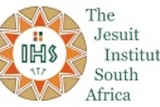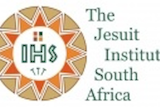South Africa Reflection: Our dysfunctional state: Why are we silent?

Source: Jesuit Institute South Africa
The news has been dominated by #FarmGate - the theft of millions of dollars from President Cyril Ramaphosa's private farm in Phala Phala. Ramaphosa has obfuscated the issue by his unhelpful communication about what happened and if he broke the law. His political enemies have capitalized on this and are using the issue as a weapon in the ANC's internal factional battles as well as in the broader political sphere.
#FarmGate is yet another stain on the already badly soiled ANC. We still don't know whether Ramaphosa broke the law. He is tainted by Marikana and this simply compounds it.
But there is something else that we need to consider. Ramaphosa has repeatedly promised the country that corruption will be weeded out. Despite this, he has kept many compromised figures from the Zuma era in key positions. The State Capture report has implicated many we already knew were tainted. Ramaphosa has failed to deal with corruption. Some say this is because he does not have a strong position in the ANC. The bottom line is that Ramaphosa is part and parcel - and was before he was president, remember - of a party that has presided over the decay of South Africa.
During Zuma's reign widespread corruption was the norm. Zuma undermined the Constitution and the law (which he continues to do). Corruption has continued in Ramaphosa's reign. The crisis of government has deepened. The state cannot even offer basic services in health, security, and transport. Ramaphosa stepped into a mess but has done little to change things.
At a workshop recently, a young man from a so-called informal settlement told me that he had finished school last year and cannot find work. His family do not have money for further education. As he spoke, I felt helpless, angry and a deep sense of hopelessness.
He, and millions of others in the country, are doomed to a life of struggle because of the incompetent and dysfunctional ANC government. The promise of a "better life for all" is dead. "Father," he said, "Me and my friends have given up. We won't vote. We feel depressed. Politicians are a joke." Young people like him, Prof Raymond Suttner wrote this week, remain "oppressed today by state violence and failure to meet their constitutional right to have their basic needs met."
Although NGOs and the faith community often try to fill the gap left by the dysfunctional state, each day more people need help and it's impossible to keep up.
We need to imagine a country loosened from the tyranny of ANC dysfunctionality. We need to rethink our political landscape because what we have now is desolate and has no future. It is heartening to see that people like Songezo Zibi are doing this in his Manifesto. He warns that we are naïve to think that the ANC can fix the country they broke. We all have to act.
Another observation was made at the workshop. A young woman from a local township stood up and asked: "What is our Church saying about our struggles?" She raised a fair point. During apartheid the Church was loud and clear. We have, in the face of a declining country and social mess, for the most part, remained silent. Why, I wonder?
Has the Church too become hopeless in the face of state dysfunction? Or have we lost the courage of the prophets of old and settled for the status quo? Maybe we suffer from a blinding loyalty? Someone needs to call a spade a spade. Urgently.


















